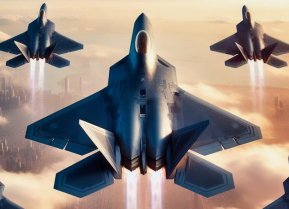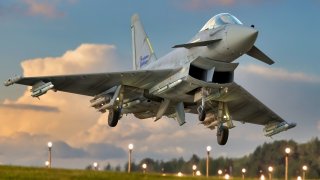Germany Is Going All-in With the Eurofighter Typhoon
Germany is set to bolster its air force by purchasing 20 additional Eurofighter Typhoons from Airbus, as announced by Chancellor Olaf Scholz.
Summary and Key Points: Germany is set to bolster its air force by purchasing 20 additional Eurofighter Typhoons from Airbus, as announced by Chancellor Olaf Scholz.
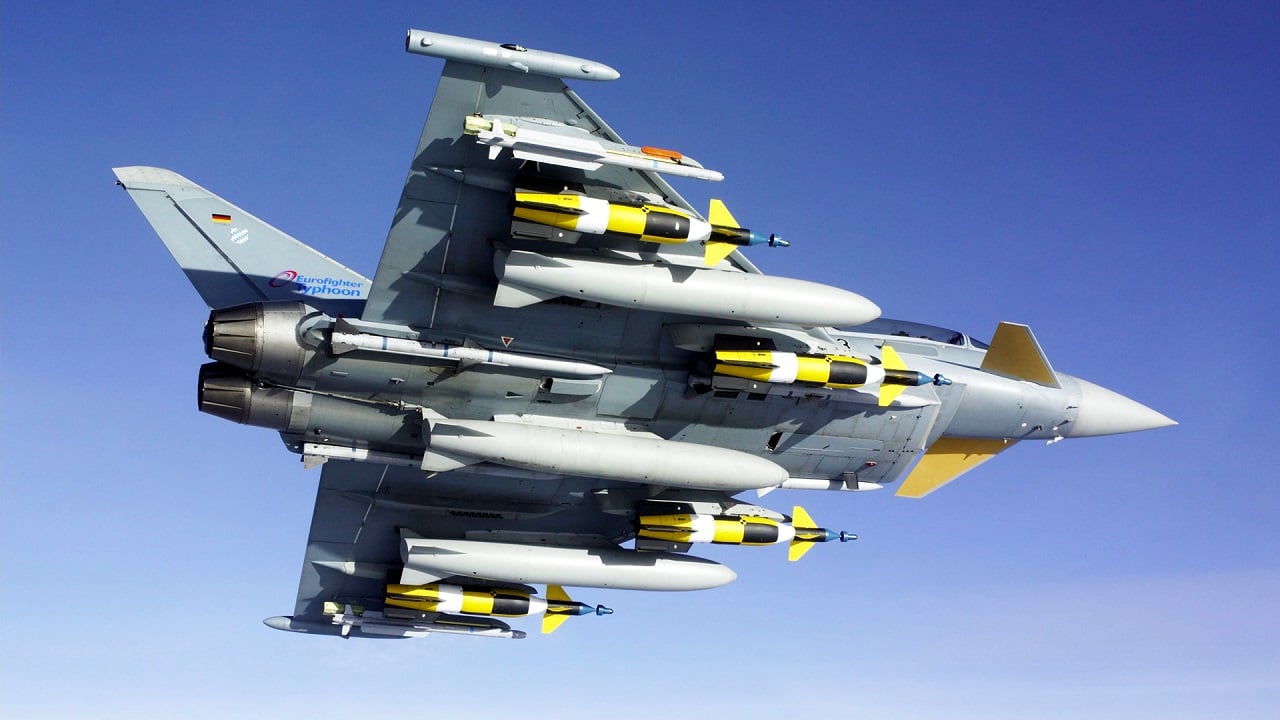
-This acquisition, valued at approximately 2 billion euros ($2.2 billion), enhances Germany's defense capabilities and ensures Airbus's production lines remain active through 2032.
-The Luftwaffe currently operates 138 Eurofighters, which serve as a key component of its combat fleet. In addition, Germany will receive 35 Lockheed Martin F-35A fighters starting in 2027.
-Germany is also collaborating with France and Spain on the Future Combat Air System (FCAS), a sixth-generation fighter project expected to be operational by the early 2040s.
Germany Expands Air Force with 20 More Eurofighter Typhoons
The Eurofighter Typhoon has taken Europe by storm, and on Wednesday, German chancellor Olaf Scholz announced that the Luftwaffe will purchase an additional twenty Eurofighters from maker Airbus. Berlin has greatly increased its defense spending as a result of Russia’s unprovoked invasion of Ukraine in February 2022.
Scholz has been committed to maintaining and expanding Germany’s arms production capacity, a point he made in a speech at the opening of the ILA air show outside of Berlin.
“That is why we will order 20 more Eurofighters before the end of this legislative session—in addition to the 38 aircraft currently in the pipeline,” the German leader remarked, according to a report from Reuters.
The price tag for the additional Eurofighter Typhoons has been put at around 2 billion euros ($2.2 billion), and in addition to helping enhance Germany’s military capabilities, the acquisition will ensure that Airbus will be able to keep its production lines running through 2032, extending it by at least two years—and that is without additional outside orders.
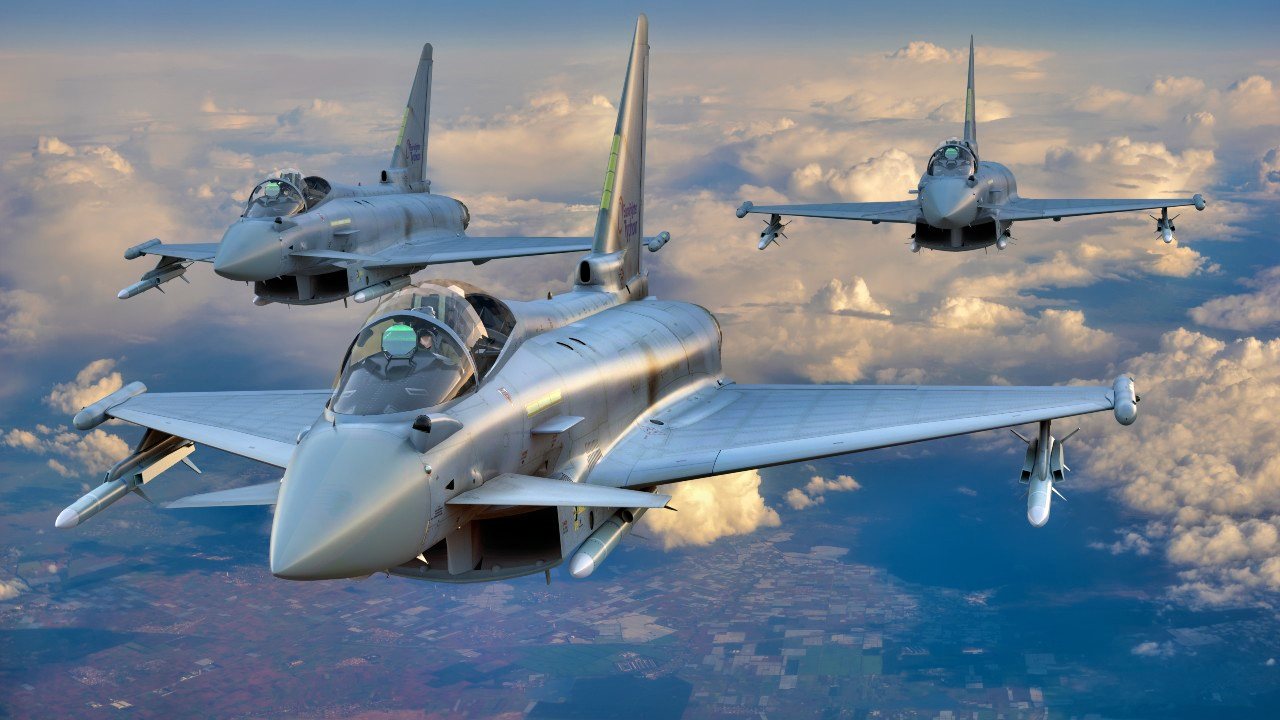
The German Luftwaffe operates 138 Eurofighters. The single-seat, all-weather multirole combat aircraft serves as the backbone of its combat aircraft fleet and can be used in both air defense and ground attack roles.
“They are a core element in ensuring the future contribution of the Air Force to the required armed forces capability profile and to the associated Alliance commitments,” explains the German Bundeswehr website. “Thanks to its ability to conduct network-enabled operations, the Eurofighter can be used in close cooperation both with German air, land and naval forces and those of military Alliance partners.”
F-35s Also Coming
In addition to the Eurofighter order, the German Luftwaffe is also on track to receive a total of thirty-five Lockheed Martin F-35As—the conventional takeoff and landing variant of the Joint Strike Fighter—with the first of those aircraft now scheduled to arrive in 2027.
It was reported last month that production of the German F-35s will occur at Lockheed Martin’s Fort Worth, Texas, factory instead of the Final Assembly Check Out facility in Cameri, Italy.
Looking Beyond the Eurofighter and F-35
Even as Berlin is going all-in with the Eurofighter Typhoon and F-35 Lightning II, Germany is already working with France and Spain on the Future Combat Air System (FCAS)—believed to be a manned or at least optionally-manned sixth-generation fighter and supporting unmanned aerial systems.
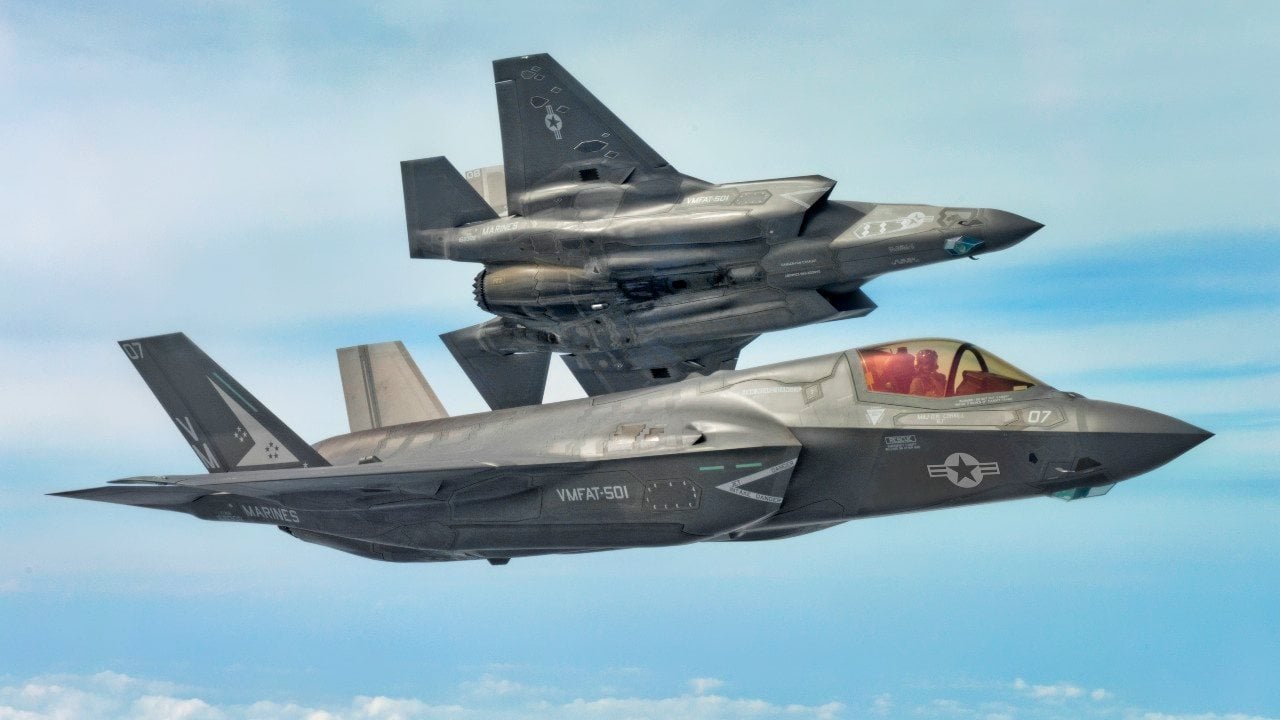
Details about the FCAS remain sparse, but the current timeline doesn’t call for the new fighter to enter service until at least the early 2040s. The program has faced a number of setbacks, including infighting among the countries involved. That fact helps explain why Germany is now adopting additional Eurofighters with advanced features, while France remains committed to the updated Dassault Rafale.
About the Author: Peter Suciu
Peter Suciu is a Michigan-based writer. He has contributed to more than four dozen magazines, newspapers, and websites with over 3,200 published pieces over a twenty-year career in journalism. He regularly writes about military hardware, firearms history, cybersecurity, politics, and international affairs. Peter is also a Contributing Writer for Forbes and Clearance Jobs. You can follow him on Twitter: @PeterSuciu. You can email the author: [email protected].
All images are Creative Commons and Shutterstock.
